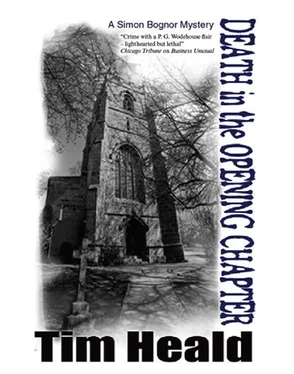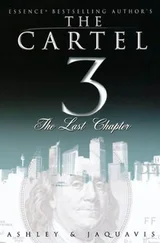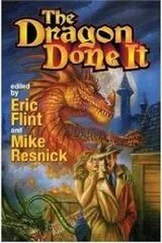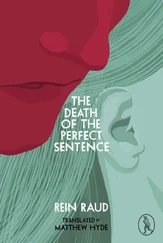Tim Heald - Death in the opening chapter
Здесь есть возможность читать онлайн «Tim Heald - Death in the opening chapter» весь текст электронной книги совершенно бесплатно (целиком полную версию без сокращений). В некоторых случаях можно слушать аудио, скачать через торрент в формате fb2 и присутствует краткое содержание. Жанр: Криминальный детектив, на английском языке. Описание произведения, (предисловие) а так же отзывы посетителей доступны на портале библиотеки ЛибКат.
- Название:Death in the opening chapter
- Автор:
- Жанр:
- Год:неизвестен
- ISBN:нет данных
- Рейтинг книги:5 / 5. Голосов: 1
-
Избранное:Добавить в избранное
- Отзывы:
-
Ваша оценка:
- 100
- 1
- 2
- 3
- 4
- 5
Death in the opening chapter: краткое содержание, описание и аннотация
Предлагаем к чтению аннотацию, описание, краткое содержание или предисловие (зависит от того, что написал сам автор книги «Death in the opening chapter»). Если вы не нашли необходимую информацию о книге — напишите в комментариях, мы постараемся отыскать её.
Death in the opening chapter — читать онлайн бесплатно полную книгу (весь текст) целиком
Ниже представлен текст книги, разбитый по страницам. Система сохранения места последней прочитанной страницы, позволяет с удобством читать онлайн бесплатно книгу «Death in the opening chapter», без необходимости каждый раз заново искать на чём Вы остановились. Поставьте закладку, и сможете в любой момент перейти на страницу, на которой закончили чтение.
Интервал:
Закладка:
Finally, the bishop’s turn came. He, more than anyone, cut a figure that was at once friendly and familiar, but also contrived to be scary. On the one hand, he was benign, short and fat, on the other, his cope, mitre and crook made him seem forbidding and frightening. His smile was beatific, but his frown was full of the wrath of God. He was, after all, God’s representative in Lymington and the surrounding diocese. When he smiled, the lilies of the field smiled back, but when he looked cross, the ground trembled. Yea, verily, he was Bishop Ebenezer and it would be sensible to keep the right side of him.
From the pulpit, he began by presenting his right side as if to the manor born by quoting a Biblical text in the traditional manner. ‘My text tonight is taken from the Gospel according to Saint John, beginning at the first verse of the first chapter: “In the beginning was the word and the word was with God and the Word was God.”’ And then he paused and looked down and around at the congregation, seemingly undecided about whether to telegraph the smile of God or the frown of God, but, instead, merely repeating the words in an incantatory manner: ‘“In the beginning was the word and the word was with God and the Word was God.”’
Once more, he looked round the congregation, seemingly uncertain whether to smile or frown, whether to play God the merciful or the God of wrath. In the end, he seemed to hold both in check and play God the neutral: a sort of ‘don’t know’ in one of Miles Kington’s plenary sessions.
‘Of course, we all know that the word “word” is a translation of the Greek “logos” and is open to any one of a number of different interpretations. I won’t, however, insult your intelligence by going down that route. Apart from anything else, I feel it would be something of a cop-out. The authors of that majestic book wrote “word” and I feel we owe it to them to believe that they meant what they wrote, and that therefore they believed in the supremacy of the word. For them the word is the word of God and the word of God reigns supreme.’
He was a long way off insulting their collective intelligence, let alone copping out. The Brigadier had certainly never come across ‘logos’. Nor Vicenza Book. Martin Allgood, well, yes, up to a point and in a manner of speaking. The Bognors, certainly. Branwell Fludd, perhaps surprisingly, yes. His wife, no.
In a curious way, it was an episcopal sorting of goats from sheep, men from boys, cognoscenti from buffoons.
‘How appropriate, therefore, that we should be meeting at the beginning of this tenth literary festival in the House of God; a God who, according to the Holy Gospel, not only believed in the word, but believed in the word above all else. All this week, we celebrate the word in its various shapes and patterns and glories. Tonight, however, we celebrate God’s word in God’s house.
‘And what, I ask myself, as we all must, at this beginning of a week of celebration of God’s unique gift, what exactly was God’s message? To what use did he put that wonderful word which he gave us, and which St John tells us about so memorably and so beautifully? What exactly did God mean? What exactly did God say? His is, by any standard, the greatest book in the world, and yet what precisely is its message? What exactly does it say? What is the message which echoes so vibrantly throughout its pages?’
Bishop Ebb was beginning to lose the attention of even those listeners who had been paying some attention, and not just listening to the more or less acceptable noise that he made. He spoke in a passably well-modulated middle-church way, some way short of the wonderfully nasal C of E fashion adopted by Alan Bennett for his seminally parodic sermon (‘My Brother Esau is an hairy man but I…’) in Beyond the Fringe, but also divorced from what generally passed for received speech in the early years of the twentieth century. The bishop spoke prose from the pulpit in an appropriate manner. It would have passed muster on the BBC’s ‘Thought for the Day’, alongside the breezy Balliolity of the Reverend Lionel Blue, the people’s Rabbi. As a matter of fact, Bishop Ebb had appeared on ‘Thought for the Day’ and was considered by the powers that be at the corporation to be rather better than such performers as Chartres, the Bishop of London (too Old Testament prophet) and Harris, the former Bishop of Oxford (too serpentine, sibilant and reminiscent of Caiaphas, the High Priest). Ebenezer Lariat fell well short of being trendy, but he was nearer the common man who listened to the radio than any of his counterparts.
Today’s bishop moved on to Flanagan Fludd. He had obviously googled Flanagan Fludd and was forced, therefore, to rely heavily on the Wikipedia entry which had been composed by Sir Branwell and Lady Fludd with a little help from the Bognors some years ago. It had been ‘improved’, as is the way with Wikipedia entries, that is to say it now contained even more ‘information’ whose factual basis was questionable. This meant that the bishop’s stuff on the eponymous festival centrepiece was thin and slightly doubtful.
This, in turn, meant that the Fludds and the Bognors switched off for the stuff about the Mallborne Pageants of the l890s, for the collaboration with Louis Napoleon Parker and the famous rhyming version of King Lear. He vaguely heard that Flanagan might perhaps not have been a man of God in the strictly conventional sense, but that he was assuredly a man of His Word, and therefore blessed in some indefinable but definite fashion, and that he was generally speaking a Good Thing, in the Sellar and Yeatman sense. Actually, it was the festival and the present generation of Fludds that were his most significant and lasting bequest, and none the worse for that.
The bishop padded out his sentences on Flanagan Fludd with references to Tennyson (whom Fludd had once met) and the optimism of Locksley Hall (‘Let the great world spin for ever down the ringing grooves of change’), despite no evidence that Fludd had ever read the epic verses, nor indeed anything much, except for his own outpourings, which were, if truth be told, more reminiscent of William McGonegall than of the poet Tennyson, but let it pass; Flanagan was one of the great impresarios, a flaneur and, above all, a man of His Word.
Here, the bishop paused and looked around the church with that curious mixture of threat and mateyness, before coming out with words which made the inhabitants of the family pew suddenly sit bolt upright.
‘Above all,’ he intoned, ‘Flanagan was a Fludd.’
He beamed again. Beatific yet baleful. It was not a smile in the usual sense, but more the sort of rictus grimace with which one brought really bad tidings. It was a more in sorrow than in anger sort of movement. He was telling his listeners that this was going to hurt him more than them. He was also signalling that this was not true, but necessary public relations. Bognor had spent years of his upbringing listening to teachers such as this. They said one thing, while meaning something quite different. What they said was nice, what they meant was nasty. Life was full of people like that. Even Bishops. Even Bishops who, on the whole, one rather liked.
‘Fludds,’ said Bishop Ebb, ‘may come, and Fludds may go. Unlike our Lord, none go on for ever.’
He smiled again, for what he had just said represented the nearest a bishop in a pulpit came to a joke.
‘Most Fludds, like the rest of us, have but a short time to live. Many manage their allotted three score years and ten. Some manage more and some less, but it matters not a lot, for the Lord giveth and the Lord taketh away, and he has an unpleasant habit of giving life on the one hand, while removing it on the other. It is no coincidence that the two most significant dates on the Christian calendar come at Christmas and at Easter. These represent, first, the giving of life and, second, the taking away of that same gift. Life is a gift of God, but so too is death.
Читать дальшеИнтервал:
Закладка:
Похожие книги на «Death in the opening chapter»
Представляем Вашему вниманию похожие книги на «Death in the opening chapter» списком для выбора. Мы отобрали схожую по названию и смыслу литературу в надежде предоставить читателям больше вариантов отыскать новые, интересные, ещё непрочитанные произведения.
Обсуждение, отзывы о книге «Death in the opening chapter» и просто собственные мнения читателей. Оставьте ваши комментарии, напишите, что Вы думаете о произведении, его смысле или главных героях. Укажите что конкретно понравилось, а что нет, и почему Вы так считаете.












